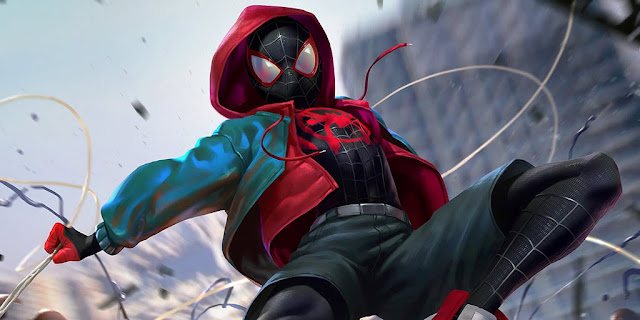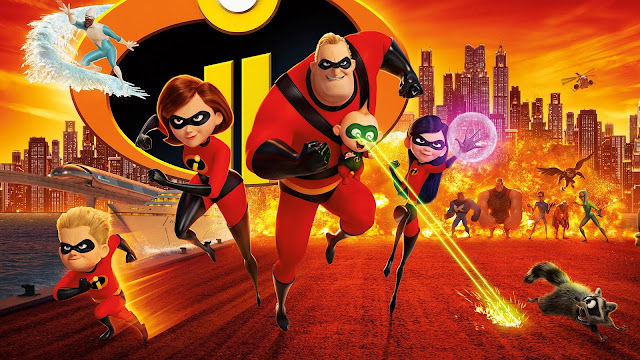"Coco" Heroic Analysis of Miguel
DEPARTURE & SEPARATION
After the movie establishes Miguel's everyday life - his sense of what is normal and familiar, his Call to Adventure and metaphorical Seizing of the Sword comes very early on once he steals away into the crypt of Ernesto de la Cruz (Benjamin Bratt). We know that he longs to be a musician, but he also wants to do right by his family, and it is his fear of letting them down that holds him back. His initial Refusal of the Call comes in those moments when the love for his family must compete against his love for music, and until he goes on his journey to marry the two worlds, he cannot fully embrace either. He resents his family for keeping him away from music, and he does not fully accept music as he is not truly willing to let go of his family.
Otherwise, Miguel is a character who completely accepts his journey, and there isn't really a definitive moment before he Crosses the Threshold where he outright refuses. After crossing, when he is with his ancestors in the Afterlife, he agrees to never play music again so that he can have his great grandmother's blessing to go home. This may be the moment where he truly refuses, as he initially accepts her conditions, turning away from music. However, he quickly fails in his promise and is re-thrust back across the first threshold, ready to begin his journey proper.
And so, realizing that his believed great grandfather is Ernesto de la Cruz, he refuses his abuelita's blessing and instead opts to search for and find Cruz. This way, Cruz can grant his blessing and allow Miguel to return home with music. Miguel has now Separated from his Ordinary World and must complete his journey before he can return. Now, Miguel is also in his metaphorical Belly of the Whale. There is no going back, and his decision has been made. The only way for Miguel to get home (and complete his journey to find a world where music can be a part of his life) is to begin his odyssey in the land of the dead.
Miguel's adopted dog, Dante (I believe is his name) serves as his Supernatural Aid. Throughout the film, and even some moments that occur before Miguel crosses the threshold, Dante is guiding Miguel. We do learn later that Dante is Miguel's spiritual guide, of sorts, and he is often nudging Miguel in the correct direction, whether Miguel, or even Dante himself, realize it.
INITIATION
Later in the film, after Miguel escapes his ancestors, meets up with Hector (Gael Garcia Bernal), and has explored the Afterlife world a little more, he has his Meeting with the Goddess. His goddess character is Frida Kahlo, an IRL Mexican Painter who was known for her self-portraits. She helps him discover his next step in his journey after the two bond over their artistry. Not only does she help Miguel progress, she validates what he is fighting for, the right to express his artistry via music. This is important for Miguel, and the viewer. Frida Kahlo brings a prestige and familiarity to the audience and allows us further insight into Miguel's talent because she recognizes his potential.
Next is Miguel's meeting with the Woman as Temptress. Now, this aspect of the hero's adventure does not have to be a literally tempting woman, though it often is, but it can be whatever manifests itself as a distraction to the hero that could prevent him for completing his quest, ultimately failing his journey and never receiving his boon. For Miguel, it could be his Abuelita, who constantly confronts him with the idea of returning home without music, which does remain an option for Miguel, though this would mean he fails his journey. There are even some moments where music itself maybe a temptress character, particularly when Miguel is having to decide between his family and the music that he loves. This, however, is not the case in the long run and bringing music into his life, and the lives of his family members, is still his ultimate reward. Alternatively, it could Ernesto de la Cruz, who, as it turns out, is not actually his grandfather. The time that he spends with Cruz is all time distracting him from completing his quest, so much so that when he finally discovers the truth, he is almost out of time.
And it is this truth that pushes Miguel into Apotheosis. He is brought to his lowest point, and physically he is even very low in the bottom of canyon (it was a canyon, right? a canyon in the land of the dead). Hector was his great grandfather all along, Cruz wasn't as great a musician as Miguel perceived him to be, he is stranded in the Afterlife and doomed to become dead himself, and he has turned on his family and knows what happens to those who are forgotten. It takes all of this to realize what he truly wants, and what his journey really means to him and the progression of his family.
The Atonement with the Father aspect of Miguel's journey is one of the strongest and clearest examples of what makes Miguel a perfect heroic character. Aside from defeating his false great grandfather, Cruz, and discovering his actual great grandfather, Hector, and saving him from being permanently forgotten, Miguel's family represents his Father, and through his narrative he finds a way to return his ancestral father to the family, reintroduce music to their lives, and succeed in bridging the gap between the love for his family and the love he has for music. He achieves a quite literal blessing from his family that allows him to achieve this Ultimate Boon and make his return.
THE RETURN
Miguel's Return, like most heroes, happens fast and pretty much hits the steps like check points as the movie wraps up. His Magic Flight happens after the epic and climactic battle scene that reveals Cruz as the villain, and he also gains the final blessing from his family, thus he reaches an Atonement. Backtracking somewhat, his Abuelita and her spirit guide helps Rescue him From Without not only during the scene where he is stranded in the canyon, but during the final stage battle sequence. Magically, he Crosses his Return Threshold and once he is home he immediately confronts his family, and gets Mama Coco (Ana Ofelia Murguia) to remember Hector. With Coco's memory of Hector, Miguel is a Master of the Two Worlds and he has brought music back into his family's life and has the Freedom to Live.
MY THOUGHTS / FINAL OPINION
Coco is a film made with passion and love. Even if it was just a way for Big Brother Disney to display a level of cultural competency, it succeeded in those efforts. I am not from South America, I have no Mexican relatives (that immediately come to mind) and my understanding of Hispanic cultures and customs is so below what it should be for a collegiate level intellectual who is spending his free time writing a blog on the movie Coco. However, after watching this film I have a new appreciation for what I learned from the film. It inspired me to explore some knowledge and educate myself. It caused me to listen to a type of music that I have not really dived into before, and being that the movie is a musical with OUTSTANDING music, there is another win.
Rating systems are usually arbitrary, 9/10 doesn't really mean the same thing for everybody, so I will refrain from giving any numerical estimation of value for this movie. I will however say that is worth seeing, and had I got this blog out when the movie was still in theaters, I would have told you to go and see it in one of those archaic constructs. It is worth it. Miguel, when viewed as a hero, can represent so many things to an individual of any age or culture. His desires as presented represent a struggle that anyone can identify with. He has the desire to do whatever it takes to accomplish his passions, but he wants, no needs, to do so without losing those who are close to him. He wants to accomplish his goals while being true to himself and remaining true to his family.







Comments
Post a Comment